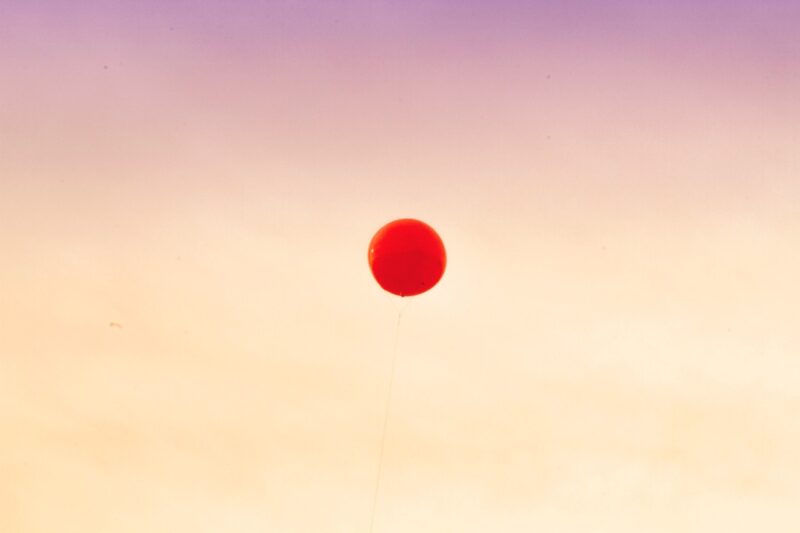MOLLY (Taking it from her. Reading) Coffee, cigarettes, cornflakes, sardines, pickles, soap and toothpaste. Each 12.5%. Total, one hundred.
There’s no mention of rent.
JENNY All you said was cornflakes.
MOLLY Nobody spends 12.5% of an income on soap and toothpaste.
JENNY Cross it out and put ‘Maintenance’.
MOLLY Give me a pencil. (Crosses out) I’ll put it instead of pickles. What can I put for cornflakes?
JENNY Try ‘Taxes’, and for ‘Cigarettes’ you could have ‘Savings.’
MOLLY Coffee – do we leave coffee?
– Mavis Gallant, What is to be Done?
On a budget: a child needs food, shelter. To learn how to navigate the world. Thicker socks in winter. A red balloon in a crowd; a child needs a friend; the safe double-knot of a thin, white ribbon around a thin wrist, not too loose or tight, in the
wilderness of
the street, life, the fair,
and its lights, sounds, smells, abundance; a child needs a companion.
“BALLOON, n. A contrivance for larding the earth with the fat of fools.”
― Ambrose Bierce, The Devil’s Dictionary
On the first of December 1783, 400,000 people gathered in the Jardin de Tuileries, in Paris, to witness the first manned balloon ascent using hydrogen gas. Among them, Benjamin Franklin, U.S. ambassador to France, founding father, polymath, inventor, scientist, publisher, serious man, seventy-seven years old, believing that balloons could “possibly give a new Turn to human Affairs. Convincing Sovereigns of the Folly of Wars, perhaps…”
and other dreamers, flâneurs, skeptics, children, politicians, detractors who questioned—loudly—the meaning and purpose of the contraption. One asked Franklin: “What is the use of it?” He replied:
“What is the use of a baby?”
There is no meaning to the balloon. No utility value. Purchased air in red latex, tied with a nylon ribbon. Helium, an adventure, something to believe, follow, chase, trust, look through and see the world in translucent colour.
Whatever they believed, that day, 400,000 people saw a balloon rise over Paris “majestically from above the trees, and ascend gradually above the buildings, a most beautiful spectacle.”
A variation of the Franklin quote reads: “What good is a baby?”
Raising children on a budget: books; more books. Stickers. Good running shoes. Crêpe pan, non-stick, and Nutella. Colouring crayons, washable, really, off any surface. Carrousels; three-dollar, three-minute rides—
Again! Twenty-five for ten. Again?
—cotton candy; sticky, pink-and-blue, adult-and-child, fingers. Balloons. A child needs balloons. On a first of December, between one and two o’clock, a balloon ascended to a total height of 550 meters over Paris, to fly for 125 minutes, covering 36 kilometers, and land at sunset in Nesles-la-Vallée. Before it disappeared, the two men inside
“held out and waved a little white pennant, on both sides of their car, to salute the spectators, who returned loud claps of applause.”
– Benjamin Franklin, The Autobiography and Other Writings
